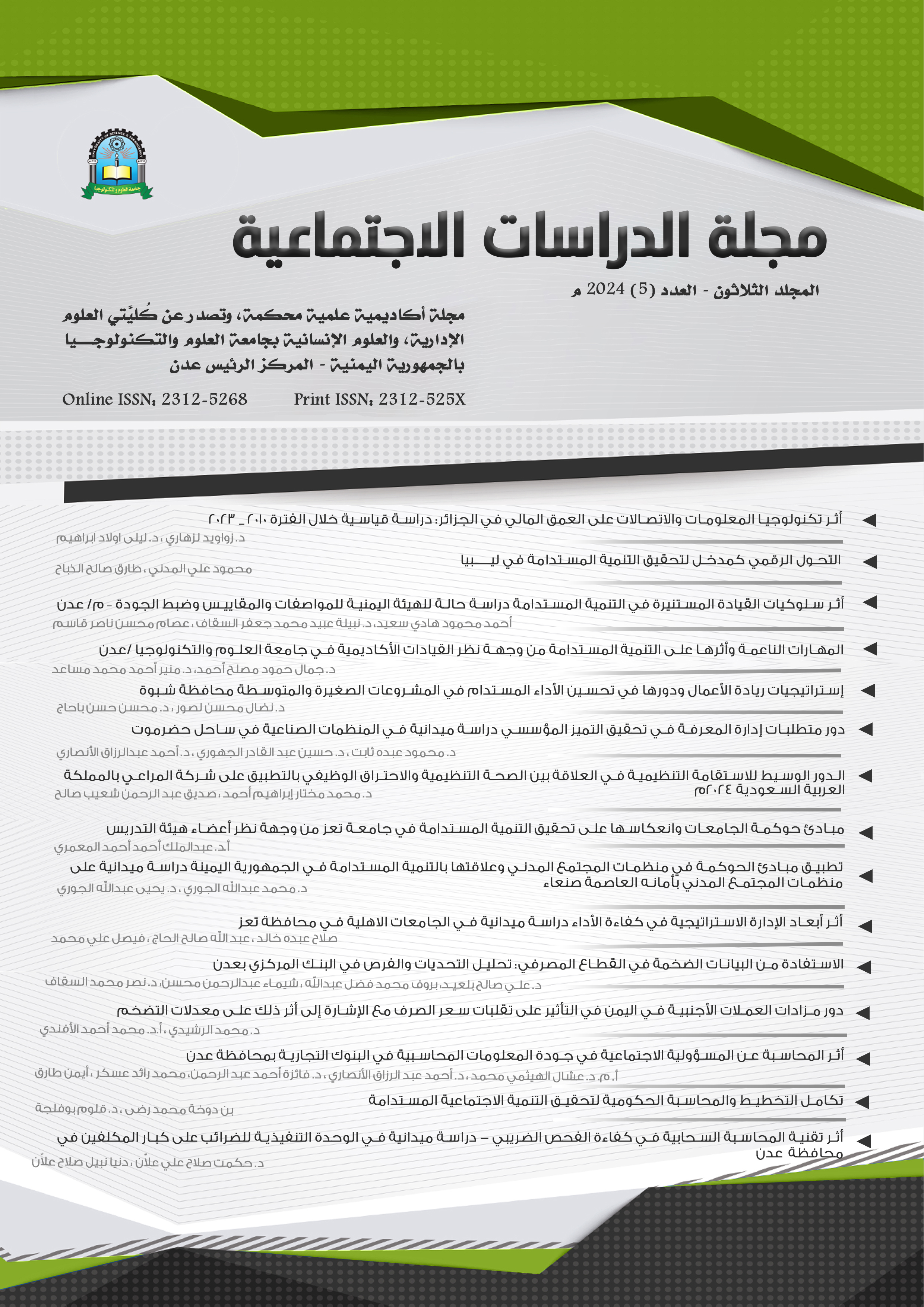The Role of Foreign Exchange Auctions in Yemen in Influencing Exchange Rate Fluctuations with Reference to Its Impact on Inflation Rates
##plugins.themes.bootstrap3.article.main##
Abstract
In recent years, rising inflation in Yemen has led to the collapse of the national currency's purchasing power, a decline in GDP's cumulative value, and worsening poverty and unemployment rates. To address the volatility of exchange prices and inflation, successive Yemeni governments have implemented monetary policy tools, notably direct intervention in the exchange market by selling foreign currencies. In November 2021, the Central Bank of Yemen refined this policy by introducing auctions conducted through the Refentive platform. This study aims to assess the role of foreign currency auctions in Yemen in influencing the inflation rate. To achieve the study's objectives, descriptive analysis and interviews with experts and officials were employed. The results revealed that there is a statistically significant relationship between foreign exchange auctions and both the impact on exchange rate volatility, liquidity absorption, and thus the impact on inflation rates. The study found that these auctions serve as an alternative to inflationary measures like money printing. The study also identified key challenges facing the auctions and suggested important developments to enhance their performance. Finally, it recommended that policymakers ensure the persistence and regularity of the auctions, strengthen them with sustainable financial resources, and use auction revenues in accordance with monetary policies rather than to cover the public budget deficit.
##plugins.themes.bootstrap3.article.details##
auction of foreign currencies, exchange price fluctuation, inflation rates

This work is licensed under a Creative Commons Attribution 4.0 International License.
JSS publishes Open Access articles under the Creative Commons Attribution (CC BY) license. If author(s) submit their article for consideration by JSS, they agree to have the CC BY license applied to their work, which means that it may be reused in any form provided that the author (s) and the journal are properly cited. Under this license, author(s) also preserve the right of reusing the content of their article provided that they cite the JSS.








